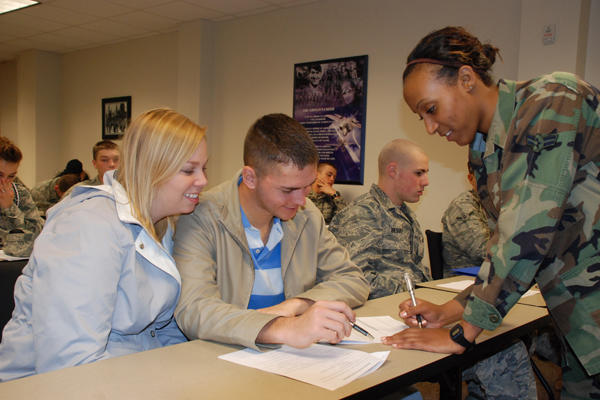We keep reading that things are getting better with the economy and unemployment among veterans is falling. The Bureau of Labor Statistics recently released data showing that veterans' consolidated unemployment rate dropped from 7.7% in August 2011 to 6.4% in July 2013.
These numbers are very encouraging; however, as anyone who cares about veterans' welfare would tell you: A single unemployed veteran is too many.
As an individual veteran, there's a lot you can do to improve the chances to get and keep a well-paying job.
First, explore the many opportunities available for veterans:
- VA new online tools for veteran job seekers
- White House Hiring Veterans Initiative
- Veterans Job Bank
- One Stop Career Centers: Located nationwide, these centers offer free employment referral service, career counseling and more to veterans.
- Federal employment veteran hiring initiatives at USAJOBS and America's Heroes at Work websites
Don't know what you're good at or what you want to do? Visit the local One Stop Career Center or try free internet tools, such as the Jung Typology Test, which gives you a basic understanding of occupational areas you may enjoy.
Then, look for work. You can find plenty of help from your community and friends, but what should you do? I have learned there are two very simple, important questions to ask myself:
- "How many people did I see today?"
- "What did I tell them?"
Make a reasonable daily goal to see a certain number of people for job referrals or networking, and visit a certain amount of employers. In my opinion, a "reasonable" goal is one that I can achieve with ease. If I create a goal to reach out to 15 people daily and I find myself only reaching out to five, then I should rethink my goal down to five to make it realistic.
Build a list of potential people and employers using your cell phone contacts. Reach out through email or online, or be active and phone or visit. Keep a log of your contacts; you can always get something good from a contact.
Then, let your friends know you're unemployed and looking for work. Make a new friend who knows you are looking for work, get a referral to a new friend or business that is hiring, or pick their brains for employment ideas. The idea is to get out there and network.
So you are seeing enough people and businesses every day, yet you can't find a job. Something is not working out. Thus, the second question you should ask is, "What am I telling them?" Could there be something in your presentation that is not working for you? Here are some suggestions to help you shape the "what did I tell them?" part of your job hunt.
First, how much active job hunting -- phone or visit -- are you doing, vs. passive -- email or online? According to Forbes, only 13% of employees were found through job boards and 22% through a company's website. This means the bulk of your search should be active. Reach out to friends. Call or go to the employer and ask for a job.
Also, if you're getting job interviews and still don't get the call, there might be something to change in your interviewing skills. Try talking in front of a mirror or ask a buddy or family member to do a mock interview with you. Call those who interviewed you before and ask them for feedback on your interview. And make sure you're properly dressed and groomed; if you are unsure, ask a friend for advice on this, too.
Finally, ask yourself why the company would want to hire you and be prepared to tell them why hiring you will help their bottom line. You need to "sell" yourself to the hiring official.
Veterans still have an edge over civilians when it comes to employment. A veteran is -- and will always be -- an immediate asset to any organization.
It was Theodore Roosevelt who said, at a speech to veterans in Springfield, Illinois, on July 4, 1903: "A man who is good enough to shed his blood for his country is good enough to be given a square deal afterwards. More than that no man is entitled, and less than that no man shall have."
Keep the faith, stay focused, seek and find government help, see enough people, say the right things and, last but not least, enjoy your new job.
Luis Concepcion is a graduate of Liberty University School of Counseling, where he completed a M.A. in human services, and served honorably in the U.S. Army. He is now a rating veteran service representative at VA's Philadelphia Pension Management Center.
Want to Know More About the Military?
Be sure to get the latest news about the U.S. military, as well as critical info about how to join and all the benefits of service. Subscribe to Military.com and receive customized updates delivered straight to your inbox.











